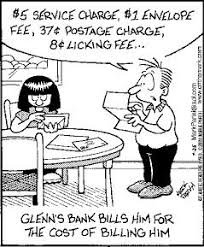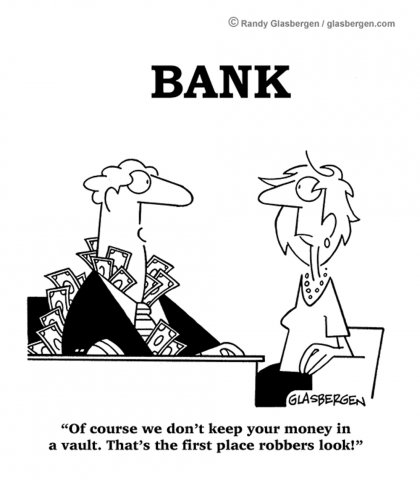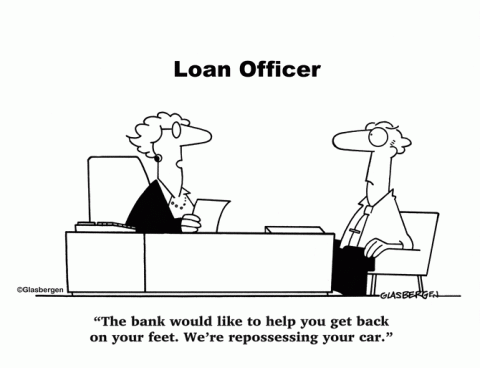Most of us tend to forget what banks are. Don't roll your eyes just yet. They are financial institutions, right. And they manage our funds, true. However, you should consider more than this simplistic perspective to start with. Banks and financial institutions actually "owe" you money. Yes. You are reading correctly. They wouldn't even exist if it weren't for your deposits or borrowings, in short, your business(es). How so? Banks were created to balance surplus and shortage of funds on the financial markets. And one of their core activities is money creation. They do it by charging more interest rates to borrowers than what they pay on savings, which is profitable.


Once you grasp the concept of how banks and financial institutions handle money, your next question is already on the tip of your tongue: what about all the charges and commissions? See, again as a reminder, banks are in the business of making money, even if they hate cash, just like me LOL. So what they do is create money to remain sustainable. And they make the money "work". In doing so, the customer can receive returns for his/her deposits. And that means, he/she has to pay for the service provided. Makes sense, no? Obviously, each service, be it for business or personal purposes, in the form of an account, a loan -a credit card or any other type of financing- or any other banking facility requires a certain fee to be offered. Banks are no charitable organization, that's for sure. Bankers are often depicted as sharks, feeding off people who are unaware, but as the adage states, "the law doesn't protect the fool". That's why it's up to you to educate yourself, especially when information is so widely spread. Agreed?

When it comes to bank fees, it is important to note that the customer needs to be informed in writing for the institution to remain fully transparent, as per applied regulations. Yes, even in Lebanon, it is unlawful to modify any fee, commission or interest rate without having notified the account holder ahead of time. Now, in times of Covid, where everything seems to be upside down, notifications are not being sent out. One will have to find out by him/her-self. Usually, when checking the monthly statement. Haven't inspected your accounts lately? It is highly time you do so! Be aware that some banks charge you for a paper statement. In which case, audit your statement online
Bank charges start at the opening of the account, when it is set up. Then later on, they can take the form of maintenance charges, withdrawal and transfer fees, ATM (automated teller machine) commissions, non sufficient funds expense or late payment penalties. They are applied to any type of transaction conducted by the bank on its customer's behalf. The banking charges and commissions are paid up either once or on a regular basis: monthly, quarterly or yearly. A large chunk of a bank's profits actually results from these fees. How else do you think the bank's expenses are covered? Read more here on types of bank fees to be avoided. And remember, monitoring your accounts regularly, allows you to avoid unnecessary charges and to manage your accounts in a sane way. Don't always rely on the bank's systems to do that!
